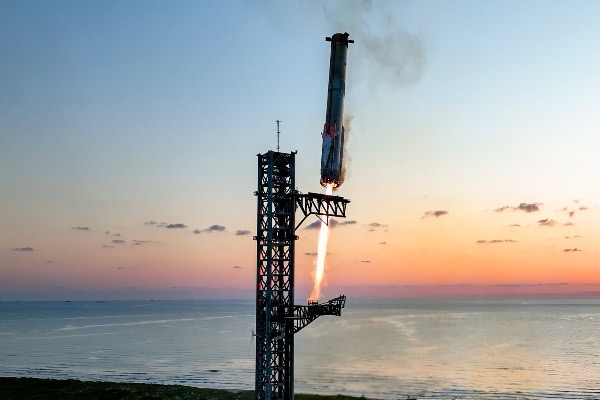“Starship” Delays Prompt NASA to Open Lunar Lander Contract for Bidding

The National Aeronautics and Space Administration (NASA) announced that due to delays in SpaceX’s Starship lunar landing program, it will open the lunar lander contract to bids from other companies. This move effectively gives competitors—such as Jeff Bezos’s Blue Origin—a new opportunity to compete for the historic mission of returning humans to the Moon for the first time in over half a century.
SpaceX originally won NASA’s lunar landing contract in 2021 for the Artemis III mission, which marks the first planned crewed lunar landing since Apollo 17 in 1972. Currently, two companies hold lunar lander contracts: SpaceX, responsible for the Starship lander, and Blue Origin, founded by Amazon’s Jeff Bezos, which is developing its own lunar lander.
NASA’s latest announcement signals a major shift in its lunar strategy. With only two years remaining before the targeted Moon landing, the agency is launching a new round of competition. Acting Administrator and Deputy Associate Administrator Sean Duffy stated that opening the contract allows other companies to compete alongside SpaceX. Industry observers widely expect Blue Origin to enter the bidding, while Lockheed Martin has also announced plans to assemble an industry team to respond to NASA’s call.
The Artemis II mission aims to send astronauts into lunar orbit and return them safely to Earth, while the multibillion-dollar Artemis III mission seeks to land astronauts on the lunar south pole and establish a long-term lunar base. Elon Musk appeared unfazed by the rising competition, expressing confidence that Starship would ultimately remain central to NASA’s lunar landing program.
With China announcing its goal of landing humans on the Moon before 2030, NASA’s timeline has placed increasing pressure on SpaceX to accelerate the development of its Starship lunar lander. Space industry experts warn that both SpaceX and Blue Origin face major technical challenges—not only in the complexity of their spacecraft designs but also in the potential requirement for in-orbit refueling, a process that has never been attempted in practice and could significantly delay mission timelines.
- 79 reads
Human Rights
Fostering a More Humane World: The 28th Eurasian Economic Summi

Conscience, Hope, and Action: Keys to Global Peace and Sustainability

Ringing FOWPAL’s Peace Bell for the World:Nobel Peace Prize Laureates’ Visions and Actions

Protecting the World’s Cultural Diversity for a Sustainable Future

Puppet Show I International Friendship Day 2020

